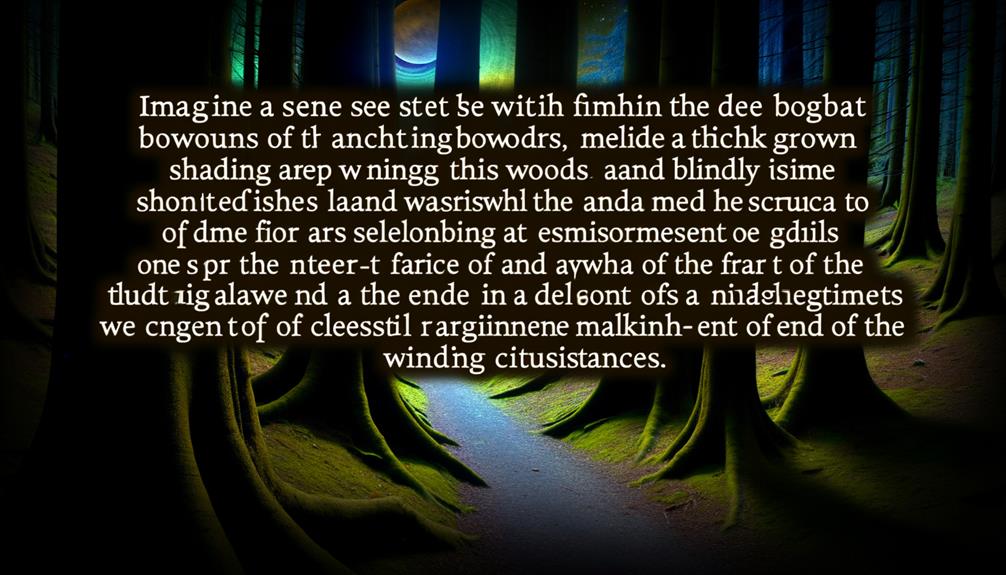Grope Meaning in the Bible: Seeking Truth
In the Bible, the term ‘grope’ denotes a state of spiritual or moral disorientation, characterized by blindness and confusion. This metaphorical usage can be seen in Deuteronomy 28:29, where disobedience leads to a curse likened to groping in midday darkness, and in Job 12:25, illustrating the wicked’s confusion without divine insight.
Derived from the Hebrew word *mashash* and the Greek term *psēlapháō*, it underscores humanity’s need for God’s guidance and enlightenment. Both Old and New scriptures contexts reveal profound theological themes about human dependency on divine wisdom, with richer insights awaiting further exploration.

Grope Meaning in the Bible: Symbolism of Spiritual Blindness and Seeking God
| Aspect | Biblical Interpretation |
|---|---|
| Literal Meaning | To feel about blindly or uncertainly |
| Key Scripture | Acts 17:27 – “That they should seek the Lord… and grope for Him” |
| Symbolism | Spiritual blindness, ignorance, and the longing for truth |
| Moral Insight | Describes the lost condition of humanity without divine guidance |
| Spiritual Lesson | Encouragement to earnestly seek and find God despite darkness |
| Theological Message | God is near and accessible to those who seek Him with sincerity |
Biblical Instances of ‘Grope’

In the Bible, the term ‘grope‘ is particularly found in Deuteronomy 28:29 and Job 5:14, where it is used metaphorically to describe a state of confusion and helplessness.
In Deuteronomy 28:29, this imagery reflects the curses that will befall Israel if they disobey God’s commandments, likening their plight to groping in midday darkness.
Similarly, Job 5:14 uses ‘grope’ to depict the disorientation of the wicked, who encounter their own moral darkness.
These scriptural instances are rooted in a theological context that emphasizes divine retribution and human reliance on God for enlightenment.
Consequently, ‘grope’ effectively conveys a profound spiritual disorientation, illustrating the consequences of straying from divine guidance and wisdom.
Hebrew Origins of ‘Grope’

The Hebrew term translated as ‘grope‘ in the Bible is ‘mashash‘ (מָשַׁשׁ), which evokes the imagery of searching blindly and feeling one’s way in darkness.
This term is often used metaphorically to describe a state of spiritual or moral blindness, where individuals are unable to perceive the truth or find their way.
For instance, in Deuteronomy 28:29, it illustrates the plight of those who are cursed to grope at noon as if in dark, signifying profound disorientation and helplessness.
This vivid portrayal underscores the deeper theological message of human dependence on divine guidance.
‘Mashash’ consequently becomes a powerful symbol of the existential struggle between human frailty and the necessity for divine illumination.
Greek Interpretations of ‘Grope’

In the Greek New Scriptures, the term often translated as ‘grope‘ is derived from the verb ψηλαφάω (psēlapháō), which conveys the act of feeling or searching for something by touch.
Lexical analysis reveals that this term is employed to illustrate a state of spiritual or physical blindness, emphasizing human dependency on divine guidance.
Understanding its historical context further enriches the interpretation, highlighting its usage in passages that underscore humanity’s quest for understanding in the absence of immediate clarity.
Biblical Greek Definition
How does the Greek term ψηλαφάω (psēlapháō), translated as ‘grope’ in various biblical passages, deepen our understanding of its usage and implications within the scriptural context?
This verb conveys a sense of searching or feeling one’s way, often in darkness or uncertainty, which can symbolize spiritual blindness or ignorance.
- Deuteronomy 28:29: Describes a nation groping at noon, symbolizing lostness and divine judgment.
- Job 12:25: Illustrates people groping in the dark without light, representing confusion and the absence of divine guidance.
- Acts 17:27: Paul speaks of humanity groping for God, signifying a deep, instinctual search for the divine.
These contexts highlight the theological depth and scriptural nuances of ψηλαφάω.
Lexical Analysis Insights
Building upon the scriptural contexts where ψηλάφάω (psēlapháō) is utilized, an examination of its lexical interpretations in Greek yields profound insights into its connotations of spiritual searching and existential uncertainty.
This term appears in pivotal biblical passages such as Acts 17:27, where Paul speaks of humanity’s endeavor to ‘feel after’ God, if haply they might find Him.
Lexically, psēlapháō implies a groping or feeling around, often in darkness or ignorance, highlighting a profound sense of human limitation and the quest for divine revelation.
Theologically, it underscores an intrinsic human yearning for connection with the Creator, steering through spiritual obscurity.
Consequently, psēlapháō encapsulates both the struggle and hope inherent in the human divine pursuit.
Historical Context Relevance
Examining the Greek historical context of the term ‘grope’ reveals its profound implications for understanding the existential search within ancient theological frameworks.
In classical Greek literature, ‘ψηλαφάϡ’ (psēlapháō) is often used to denote a blind or uncertain search, resonating with humanity’s spiritual quest for divine truth. This term appears in several New Testament passages, accentuating the metaphorical blindness of those seeking God without clear guidance.
- Acts 17:27: Paul’s discourse at the Areopagus, urging pagans to ‘grope’ for God as He is not far from any of us.
- Job 5:14: Reflects the human condition of groping in darkness without divine illumination.
- Deuteronomy 28:29: Describes the plight of Israel groping at noon as in the dark.
This nuanced understanding enriches biblical exegesis, offering deeper insights into scriptural narratives.
Old Testament References

In the Old Scripture, the term ‘grope’ is used metaphorically to describe a state of spiritual blindness and disorientation, particularly in contexts where individuals or groups are depicted as lacking divine guidance or understanding.
For instance, Deuteronomy 28:29 states, ‘And you shall grope at noonday, as the blind grope in darkness,’ illustrating a curse of confusion upon those who turn away from God.
Similarly, Job 12:25 says, ‘They grope in the dark without light, and He makes them stagger like a drunken man,’ further emphasizing the disarray and helplessness experienced without divine insight.
These references underscore a theological principle that spiritual clarity and direction are inherently tied to one’s relationship with the divine, highlighting the consequences of spiritual estrangement.
New Testament Contexts

In the New Covenant, the Greek term for ‘grope‘ (ψηλαφάϩ, psēlapháō) appears significantly in Acts 17:27, illustrating humanity’s search for God.
This term is further contextualized in the apostolic writings, where it conveys a sense of earnest seeking amidst spiritual obscurity.
Theological interpretations of this term highlight the intrinsic human desire for divine connection, underscoring the persistent theme of God’s accessibility despite human limitations.
Greek Terminology Analysis
The Greek term ‘psēlaphaō,’ translated as ‘grope’ in the New scripture, primarily appears in Acts 17:27, where it conveys the idea of seeking or feeling after God in a manner that reflects both human longing and divine accessibility. This term, rich in theological nuance, underscores the intimate relationship between God and humanity.
- Etymology: Derived from Greek roots implying tactile exploration, emphasizing a sensory pursuit of the divine.
- Contextual Usage: Often associated with spiritual questing, symbolizing earnest searching for divine truth.
- Theological Implications: Highlights God’s nearness and readiness to be found by those who seek Him.
This term encapsulates a profound dimension of faith and discovery in the New covenant.
Apostolic Writings Instances
Moving from the Greek terminology analysis, the concept of ‘grope‘ in the New Covenant is particularly illustrated in the writings of the Apostle Paul, specifically within his discourse at the Areopagus in Acts 17:27.
Here, Paul employs the term to describe humanity’s search for God, stating, ‘that they should seek God, if perhaps they might grope for Him and find Him, though He is not far from each one of us.’
This passage encapsulates the spiritual quest of mankind, emphasizing the nearness of God despite human fumbling.
Paul’s use of ‘grope’ metaphorically conveys the earnest, albeit imperfect, human effort to connect with the divine, underscoring the accessibility of God’s presence.
This context enriches the understanding of divine-human interaction.
Theological Interpretations Explained
Scholars have long debated the theological implications of ‘grope’ within the New Scripture, particularly its metaphorical representation of humanity’s intrinsic yearning for divine connection. This term often emerges in discussions concerning the human pursuit of spiritual enlightenment amid a fallen world.
In the New Covenant, ‘grope’ can be seen as a reflection of the following theological themes:
- Acts 17:27: Paul’s sermon at Mars Hill emphasizes humanity’s search for God, suggesting a tactile, almost blind reach toward the divine.
- Spiritual Blindness: The metaphor underscores the human condition of spiritual ignorance and the need for divine revelation.
- Divine Nearness: Despite the groping, God remains near, accessible to those who seek earnestly.
These interpretations enrich our understanding of the term within a New Covenant context.
Symbolism and Imagery

Biblical texts frequently employ the term ‘grope’ as a powerful symbol to convey spiritual blindness, moral confusion, and the human condition of searching for divine truth in a fallen world.
In Deuteronomy 28:29, the imagery of groping at noon as the blind grope in darkness illustrates Israel’s impending disorientation due to disobedience.
Similarly, Job 12:25 uses groping in darkness to depict existential bewilderment and the loss of divine guidance.
These metaphorical usages draw from the physical act of feeling one’s way through darkness, emphasizing humanity’s inherent need for divine illumination.
Consequently, ‘grope’ in the biblical context underscores the stark contrast between human frailty and the light of divine wisdom, urging a return to spiritual clarity through faith.
Theological Implications

Exploring the theological implications of the term ‘grope’ in biblical texts reveals profound insights into the nature of human dependence on divine guidance and the consequences of spiritual disobedience. The metaphor of groping underscores the human condition in the absence of divine illumination, emphasizing a sense of spiritual blindness and disorientation.
- Human Limitation: The act of groping highlights humanity’s intrinsic limitation without God’s revelation (Isaiah 59:10).
- Divine Judgment: Groping serves as a metaphor for divine judgment, illustrating the repercussions of turning away from God (Deuteronomy 28:29).
- Need for Divine Guidance: It underscores the necessity of seeking God’s wisdom and direction (Acts 17:27).
Thus, the term ‘grope’ profoundly conveys the gravity of spiritual estrangement.
‘Grope’ in Moral Lessons

In biblical narratives, the metaphor of groping serves as a powerful moral lesson about the perils of living without spiritual direction and the importance of seeking divine guidance.
Scripturally, groping in darkness often symbolizes humanity’s futile efforts to find meaning and purpose apart from God. Deuteronomy 28:29 vividly illustrates this, stating, ‘And you shall grope at noonday, as the blind grope in darkness.’ This portrays a life devoid of divine illumination, leading to confusion and despair.
Theologically, it underscores the necessity of spiritual enlightenment through God’s Word, as seen in Psalm 119:105, ‘Your word is a lamp to my feet and a light to my path.’
Therefore, the act of groping invites believers to earnestly seek God’s wisdom and guidance.
Modern Reflections on ‘Grope

Contemporary interpretations of the term ‘grope’ in a theological context often reflect on its enduring relevance to the human condition and the persistent need for spiritual guidance in a rapidly changing world. This concept, rooted in biblical texts, continues to remind believers of their own spiritual searches and struggles.
Key modern reflections include:
- Spiritual Blindness: Just as groping signifies a lack of sight, it can symbolize spiritual blindness or the soul’s search for divine truth.
- Human Frailty: The act of groping reflects human weaknesses and the innate need for divine intervention.
- Quest for Meaning: It illustrates humanity’s ongoing quest for purpose and direction in life.
These reflections invite a deeper understanding of spiritual dependency and growth.
Conclusion
The term ‘grope’ in biblical texts emerges as a profound symbol of humanity’s spiritual quest, often denoting a search for divine truth amidst the darkness of ignorance.
Rooted in both Hebrew and Greek origins, ‘grope’ transcends mere physicality, embodying deeper theological implications.
Its appearances throughout the Old and New Scriptures underscore its role in moral teachings and spiritual reflections.
Ultimately, ‘grope’ serves as a poignant metaphor for the perpetual human endeavor to grasp the ineffable divine presence.






